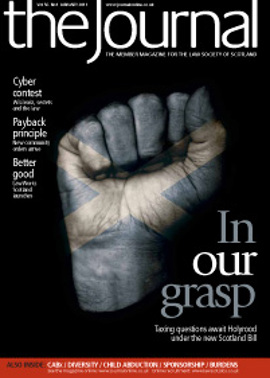Time to take the plunge?

“Hot-tubbing” – or “concurrent evidence” as it is formally known – is becoming an increasingly popular practice whereby experts from both sides of a dispute take the stand together, with the judge or arbitrator leading a discussion between them. What makes this approach unique is the fact that it does, indeed, encourage an open and frank discussion between both sides. As such, this model differs from a traditional cross-examination, since there are no counsel shaping the way in which the experts give their evidence.
At the moment, the use of concurrent expert evidence is voluntary, and requires full agreement from all parties. However, the hot-tubbing method is already being championed as an effective way of tackling the longstanding and systemic problems associated with adversarial expert testimony.
The philosophy behind hot-tubbing
Although hot-tubbing represents a new way of collecting expert testimony, it retains the most important features of direct and cross-examination, as each party still has a chance to make its own argument.
However, because hot-tubbing can be used to solicit the viewpoints of multiple expert witnesses at the same time, this model can be especially useful for cases that include unusually complex findings, questions or conclusions.
The construction industry, in particular, faces a number of important challenges in this regard, as design and construction problems often require a thorough forensic investigation to determine the root cause of the issue. Defects in construction can occur for a variety of reasons, and can lead to serious damage, leaks, flooding, mould, cosmetic flaws and even structural instability.
With the hot-tubbing model, the hope is that experts in all of these areas can “tell it like it is” as they give their testimony: they can discuss the case openly, ask each other questions, and respond to enquiries from the judge or arbitrator directly. With this approach, the experts involved can often find common ground and/or take the time to discuss any issues that are proving especially difficult to resolve. As a result (and because they are not confined to answering questions posed by advocates), hot-tubbing can – at least in theory – help these experts to respond to each other's questions more effectively.
However, with the hot-tubbing model in particular, it’s not only important to have an expert who knows his/her topic well, but also to make sure that the expert has the knowledge and ability to offer a convincing argument, especially in court or in a binding arbitration. In other words, when it comes to the hot-tub, experts need more than just the knowledge and experience required to support their opinion: they must also be credible and convincing in terms of how they present their testimony.
Further outlook
The Technology and Construction Court in the UK has recognised the need for change and has introduced, in its TCC Guide (2nd edition, 2nd revision, dated October 2010) the hot-tubbing model as an alternative available to the parties. It is understood that a suitable pilot case is being sought in order to evaluate the types of cases that might be suitable, the extent of cost savings achieved, and whether the parties and their advisers perceive the procedure as an effective and fair basis for resolving their disputes. For the moment it is for the parties to choose this route: it has yet to be tested whether under the new Guide the judge can make the decision.
It remains to be seen whether hot-tubbing will lead to a reduction in costs, both in litigation and in arbitration. If parties continue to opt for both the hot-tub and traditional methods of cross-examination, then it is unlikely that the amount of time saved will be significant. Having said that, most experts expect the hot-tubbing model to become more common in construction disputes and other areas of arbitration in the future.
To prepare for these changes, all parties – including arbitrators and judges – will need to embrace the purpose of the hot-tub properly, which is to get to the root of the issues between the parties in a constructive (rather than combative) manner. Even so, the effectiveness and fairness of this model will ultimately depend on the tribunal’s approach and ability to manage the hot-tubbing process effectively.
Regardless of whether or not the hot-tub model gains widespread acceptance in the UK, expert evidence will continue to be needed when it comes to resolving disputes effectively, whether in the construction industry or in other areas. In addition to providing testimony and litigation support, experts may be required to analyse the many technical, schedule and cost issues that arise during arbitration.
Hot-tubbing allows the judge or arbitrator to draw on a diverse range of experience and expertise in order to address complex issues effectively, so that all sides benefit from the wisdom of dedicated experts who fully understand highly technical concepts. Although all businesses would prefer to avoid any disputes in the first place, the ability to call upon expert witnesses – whether in or out of the hot-tub – will continue to be an invaluable part of ensuring a swift resolution to a wide variety of legal disputes.
In this issue
- Prison accommodation for transgender people
- Challenge of the new
- An issue that will not die
- Revolution in the making
- Sasine service
- The welfare imperative
- War on the web
- Payback time
- Diverse means
- Good and better
- Help where it's needed
- Appreciation: Elaine Tyre
- Forum discusses EU contract law
- Law reform update
- Time to take the plunge?
- Ask Ash
- Money talking
- Cut the risk of harm
- Trust rewritten
- Promoting responsibility
- Fathers made relevant
- Tread warily: habitats
- Forum at the frontiers
- Website review
- Book reviews
- Signs of the times






